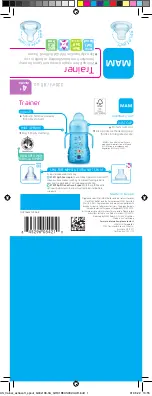
PowerSafe
®
SBS batteries are supplied in a charged condition,
and are capable of extremely high short circuit currents. Take
care to avoid short-circuiting terminals of opposite polarity.
1. Receiving
1.1 In-Transit Damage or Short Shipments
Upon receipt of a shipment, check that the items delivered are
undamaged and match the carrier’s Bill of Lading. Report any
damage or shortages to the carrier. EnerSys
®
is not responsible
for shipment damage or shortages, which the receiver does not
report to the carrier.
1.2 Shipment Damage or Shortages
Open the shipping containers and check the contents for
damage and against the packing slip. Immediately inform
EnerSys of any damaged or missing items. EnerSys is not
responsible for damaged or missing items after
a shipment has been in storage.
2. Storage
2.1 Storage Conditions and Time
If a battery cannot be immediately installed it should be stored in
a clean, cool, dry area.
During storage batteries lose capacity through self-discharge.
High temperature increases the rate of self-discharge and
reduces the storage life.
The chart below shows the relationship between open-circuit
voltage (OCV) and storage time at various temperatures.
The maximum storage times before a freshening charge is
required and recommended open circuit voltage audit intervals
are:
Monoblocs must be given a freshening charge when bloc
voltages approach the equivalent of 2.10 volts per cell or when
the maximum storage time is reached, whichever occurs first.
2.2 Freshening Charge
Charge the monoblocs, or string at a constant voltage equivalent
to 2.27Vpc with 10% of the C
8
current available for a period of at
least 24 hours.
3. Battery Location
The battery compartment/room must have adequate ventilation
to limit hydrogen accumulation to a maximum of 1% by volume
of free air.
4. Installation
Install the batteries in accordance with the instructions and/or
layout drawing, taking care to ensure correct terminal location
and polarity. On each monobloc the positive terminal is
identified by a “+” symbol.
Connect the blocs with the connectors and fasteners provided.
The fastener torque value is:
Temperature
Storage Time
OCV Audit Interval
°F / °C
Months
Months
50 /10
48
6
59 / 15
34
6
68 / 20
24
4
77 / 25
17
4
86 / 30
12
3
95 / 35
8.5
2
104 / 40
6
2
Type
Fastener
Torque
Size
lbf in / Nm
SBS 8
M4
9/1.0
SBS 15 - 60
M6
35 / 3.9
SBS 110 - 390
M8
44 / 5.0
SBS J13 - 70
M6
50 / 5.6
SBS B8 - 14
M8
44 / 5.0
SBS C11
M8
44 / 5.0
SBS 145
M6
44 / 5.0
SBS B8F - 14F
M6
44 / 5.0
SBS C11F
M6
44 / 5.0
SBS 145F
M6
44 / 5.0
SBS 170F - 190F
M6
80 / 9.0
SBS 100
M8
44 / 5.0
SBS 100F
M6
44 / 5.0
SBS 112F
M6
44 / 5.0
2.17
2.16
2.15
2.14
2.13
2.12
2.11
2.10
100
96
91
87
83
79
74
70
Open Circuit V
oltage per Cell
Approx. % State of Charge
Months
0
6
12
18
24
30
36
42
48
+40
°
C
+30
°
C
+25
°
C
+20
°
C
+10
°
C
114
°
F
68
°
F
50
°
F
77
°
F
86
°
F
Instruction Sheet
No smoking,
no naked flames,
no sparks
Electrolyte is corrosive
Electrical hazard
Shield eyes
Clean all acid splash in eyes
or on skin with plenty of
clean water. Then seek
medical help. Acid on
clothing is to be washed
with water.
Danger
Read instructions
Warning: Risk of fire,
explosion, or burns. Do not
disassemble, heat above
60°C, or incinerate. Avoid any
short circuit. Metallic parts under voltage
on the battery, do not place tools or items
on top of the battery.
Recycle scrap
batteries.
Contains lead
Publication No:
US-SBS-IS-007 June 2012
California Proposition 65 Warning – Battery posts, terminals
and related accessories contain lead and lead compounds,
chemicals known to the State of California to cause cancer and
reproductive harm. Wash hands after handling.
Important
Read these instructions immediately on receipt. Failure to
comply with these instructions can render any warranty null
and void.
€
Caution
Place the insulating covers in position immediately after
tightening the fasteners.




















